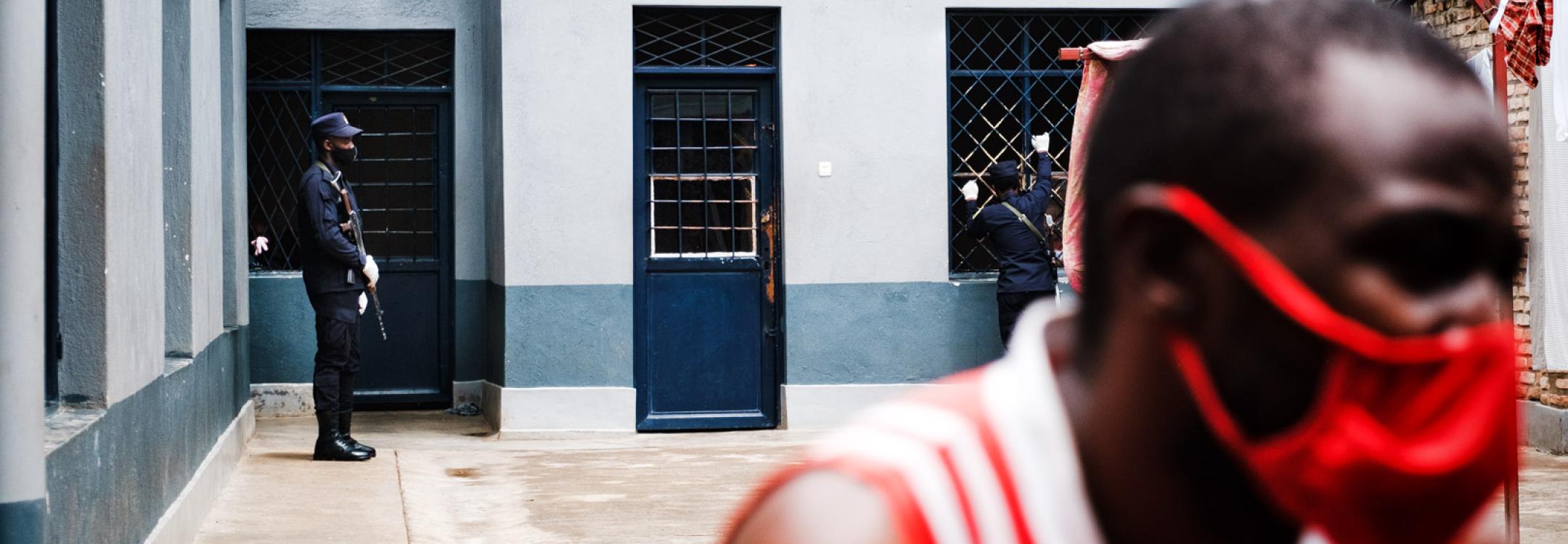
The last two years have been particularly fruitful to advance and mobilise towards the creation of new local preventive mechanisms (LPM) against torture in Brazil. After a few years of stagnation and lack of progress in this area, state-level processes have been gaining momentum and boosting the creation of new mechanisms for the prevention of torture.
LPMs are key in enabling a preventive and effective approach to inhibit human rights violations and protect dignity of people at risk. The impact and effectiveness of the national system envisioned by the Brazilian federal law relies significantly on the establishment of a network of preventive mechanisms at the state level.
Recently, a renewed momentum has emerged. Two new preventive mechanisms have been set up in the States of Acre and Sergipe. After many years of strong mobilisation by grassroots organisations and the National Preventive Mechanism (NPM), the State of Ceará approved its legislation establishing its own mechanism. Members have already been selected and this new mechanism is due to start operating soon. In the centrewest State of Tocantins, after intensive advocacy of local actors and in partnership with the NPM and APT, resources to comprise new oversight bodies have been secured.
Such developments indicate that mobilisation continues to remain strong in Brazil. Civil society organisations remain firm on their endeavours to secure a nationwide system and to firmly advocate before State authorities to create OPCAT-compliant oversight bodies at the state level. The NPM has also served as a vital figure at the state level to promote the LPM creation. Furthermore, the National Council of Human Rights has recently released a statement calling for state level governments to promptly establish LPMs in strict accordance with the OPCAT.
However, some milestones have been the result of taking the matter to courts. The Federal Public Prosecution Office (Ministério Público Federal), through the Federal Prosecutor for the Rights of the Citizen (PFDC), has been leading litigation initiatives at the state level to judicially pursue the creation of LPMs and enforce the obligation of the states to establish their own oversight bodies, as foreseen in the national legislation.
In the State of Acre, for example, the LPM was created after the celebration of an extra-judicial agreement through which the Government of Acre formally committed to effectively implement its own LPM. In Sergipe, the LPM was designated after an injunction decision issued by the State Court by the request of Federal Public Prosecution Office. In the State of Amazonas, a federal court ruling has ordered the Government to implement an LPM within 90 days. Such examples showcase the impact of judicial action and advocacy.
Similar judicial proceedings have been carried out in the State of São Paulo as well- a state with approximately 1/3 of the prison population in the country, São Paulo has approximately 198.000 persons deprived of liberty within the prison criminal justice system. In 2018, after years of concerted efforts by a coalition of state and non-state actors, a bill of law was approved in the Legislative Assembly to create an 11-member LPM. This was a major victory for civil society who, for many years, intensely advocated and pushed for the creation of an LPM in the State. However, the reasons to celebrate did not last long. Just a few days later, the State Governor vetoed the bill of law in its entirety, a setback that until today has not been reversed by local parliamentarians.
This year, following a lack of progress in dialogue with state actors, the Federal Public Prosecution Office with the Public Defense Office presented a judicial proceeding to enforce the State to create its own local preventive mechanisms in compliance with national legislation, OPCAT requirements and international recommendations to Brazil. After an initial positive outcome, which was in the form of an injunction ruling ordering the State to create the oversight body, the original ruling was suspended following an appeal by the State of São Paulo, and a final decision is still pending judgment. A coalition of civil society organisations of which APT is part, maintains its efforts of mobilisation.
In line with such developments, a new set of guidelines is also in place to assist State and non-State actors in their endeavors to create LPMs. The new Recommendation issued by the National Committee to Prevent Torture addresses strategic issues such as criteria for membership and institutional structure and are based on best practices and lessons learned from the experience of existing mechanisms.
APT has also developed a resources page aimed at providing technical tools and support local actors in their endeavours to set up LPMs. Our resource page systematises existing national legislation, related norms and guidelines, provide answers to frequently asked questions regarding LPMs’ budgets, working structure and membership and exhibit a map the current state of LPM establishment.
The expansion and consolidation of the national system to prevent torture continues to be a challenge. As of today, only 6 states have set their LPMs. Many of those still function with precarious working conditions and insufficient human resources.
Additionally, the dismissal of all expert members that comprised the oversight body of the State of Pernambuco represented a major setback in a longstanding state-level prevention policy. This is of particular concern as it takes place in a state that has been object of measures ordered by the Interamerican Court due to severe human rights violations in its prison system.
Just last year, the United Nations Committee against Torture issued a compelling recommendation calling on Brazil to “take all the measures necessary to promptly establish a network of preventive mechanisms in all states, and ensure that each of the bodies in the network has the resources and functional and operational independence necessary to fulfil its preventive mandate in accordance with the Optional Protocol to the Convention, including access to all places of deprivation of liberty on the basis of its own priorities.”
The recent momentum in establishing local preventive mechanisms against torture in Brazil is a significant step forward. Despite challenges, efforts by civil society, the National Preventive Mechanism, and judicial actors continue to drive progress. The recent announcement of the creation of a network of preventive mechanisms in Latin America can also become an additional support to push for national progress in Brazil.
